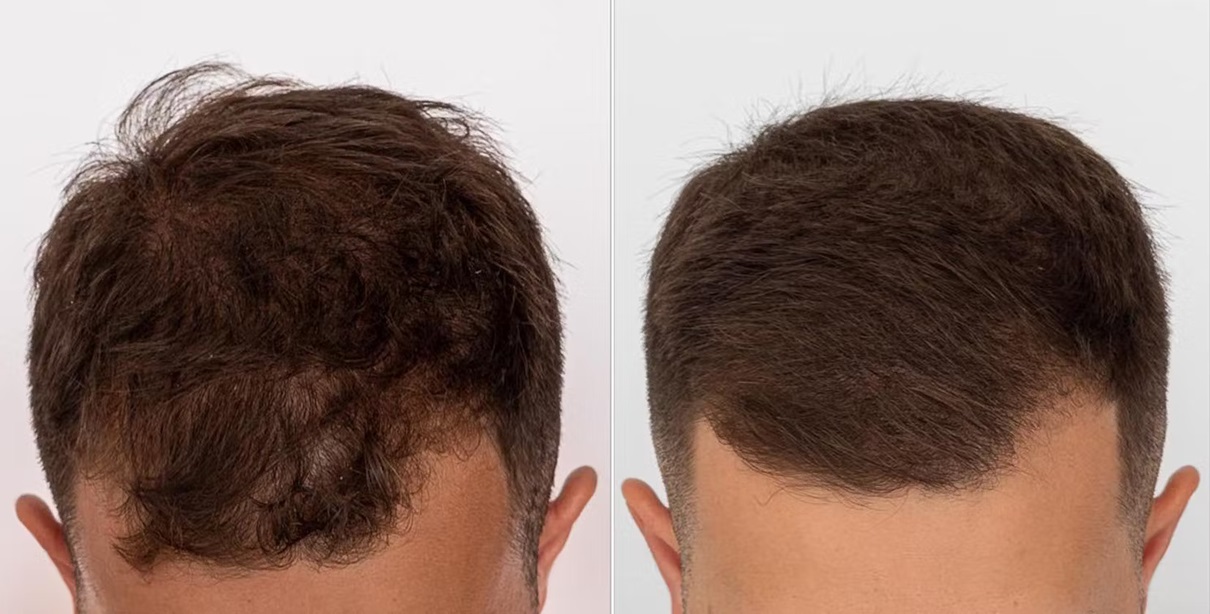
Best Minoxidil Resistance Tests in Thane
Introduction to Minoxidil and Its Role in Hair Growth
Minoxidil is a popular topical solution for combating hair loss, particularly in individuals with androgenetic alopecia.
Initially introduced as an oral medication for hypertension, its ability to promote hair growth was discovered serendipitously.
This discovery led to its reformulation as a topical agent to treat hair thinning and baldness, marketed under various brand names like Rogaine.
Despite its widespread success, some users experience minimal to no improvement, a phenomenon termed Minoxidil resistance. This has spurred the development of Minoxidil resistance tests to better understand and address this issue.
Exploring Minoxidil Resistance
Minoxidil resistance refers to the condition where individuals do not exhibit the expected positive response to Minoxidil treatment, resulting in persistent hair loss or negligible hair regrowth. This can be disheartening for users who have placed their hopes in this treatment. Deciphering the causes of Minoxidil resistance is essential for developing effective therapeutic strategies.
Factors Contributing to Minoxidil Resistance
Several elements can contribute to the phenomenon of Minoxidil resistance, including:
Genetic Predispositions: Genetic variations can influence an individual's response to Minoxidil. Certain genes involved in hair growth and the metabolic pathway of Minoxidil can affect its efficacy.
Enzymatic Activity Variations: The enzyme sulfotransferase is crucial for converting Minoxidil into its active form, Minoxidil sulfate, on the scalp. Variations in sulfotransferase activity can significantly impact treatment outcomes.
Scalp Health: Conditions like seborrheic dermatitis or excessive scalp oiliness can create barriers, hindering Minoxidil absorption and effectiveness.
Application Errors: Inconsistent application or incorrect dosage can lead to reduced treatment efficacy.
The Significance of Minoxidil Resistance Tests
Minoxidil resistance tests aim to identify individuals who are less likely to benefit from Minoxidil treatment. These tests offer valuable insights that can guide personalized treatment plans and enhance outcomes for those battling hair loss.
Types of Minoxidil Resistance Tests
Several testing methods can help assess Minoxidil resistance:
Genetic Screening: Genetic tests can detect specific gene variations associated with poor Minoxidil response. These tests analyze DNA samples to identify polymorphisms in genes related to hair growth and Minoxidil metabolism.
Sulfotransferase Activity Measurement: This test evaluates the activity of the sulfotransferase enzyme in the scalp. A scalp biopsy or hair follicle sample is typically used to measure the enzyme's ability to convert Minoxidil to its active form.
Scalp Condition Analysis: Dermatological assessments can identify scalp conditions that may impede Minoxidil absorption. Treating these conditions can improve the treatment's effectiveness.
Advantages of Minoxidil Resistance Testing
Customized Treatment Plans: Identifying the root cause of resistance allows healthcare providers to tailor treatment plans to the individual's specific needs. This may involve adjusting the dosage, combining treatments, or addressing scalp conditions.
Cost Savings: Understanding whether a patient is likely to respond to Minoxidil can save time and money by avoiding ineffective treatments and focusing on more promising alternatives.
Enhanced Patient Satisfaction: Patients are more likely to adhere to treatments when they see positive results, leading to higher satisfaction and better overall outcomes.
Steps for Patients Facing Minoxidil Resistance
For patients suspecting Minoxidil resistance, the following steps are recommended:
Seek Dermatological Advice: A healthcare professional can conduct a comprehensive examination and recommend appropriate tests to identify the cause of resistance.
Consider Genetic Testing: Genetic tests can offer insights into whether genetic factors are contributing to the lack of response.
Assess Scalp Health: Ensuring the scalp is in optimal condition for Minoxidil absorption is critical. Treat any underlying scalp conditions that may be present.
Adhere to Application Instructions: Ensure that Minoxidil is applied consistently and according to the prescribed dosage. Improper application can significantly affect results.
Alternative Hair Loss Treatments
If Minoxidil resistance is confirmed, several alternative treatments are available:
Finasteride: An oral medication that inhibits the conversion of testosterone to dihydrotestosterone (DHT), a hormone implicated in hair loss.
Platelet-Rich Plasma (PRP) Therapy: A treatment involving the injection of a concentration of a patient's own platelets to stimulate hair growth.
Hair Transplant Surgery: A surgical option for those with significant hair loss, involving the transplantation of hair follicles from one part of the scalp to another.
Low-Level Laser Therapy (LLLT): A non-invasive treatment using laser light to stimulate hair follicles and promote regrowth.
Consult an Expert - Dr. Manish Ratnakar
For individuals experiencing Minoxidil resistance or seeking expert advice on hair loss treatments, it is advisable to consult Dr. Manish Ratnakar, a renowned Cosmetologist and Trichologist in Mumbai, Maharashtra at Revitalize Clinic. Dr. Manish Ratnakar’s expertise can provide personalized insights and effective solutions tailored to each patient's needs.
Conclusion
Minoxidil resistance can be a significant hurdle for those attempting to combat hair loss. However, advancements in genetic testing and enzyme activity assays have equipped us with better tools to identify and overcome this resistance.
Personalized treatment plans, informed by Minoxidil resistance tests, can greatly increase the chances of successful hair regrowth. For those who do not respond to Minoxidil, a variety of alternative treatments offer hope and potential solutions.